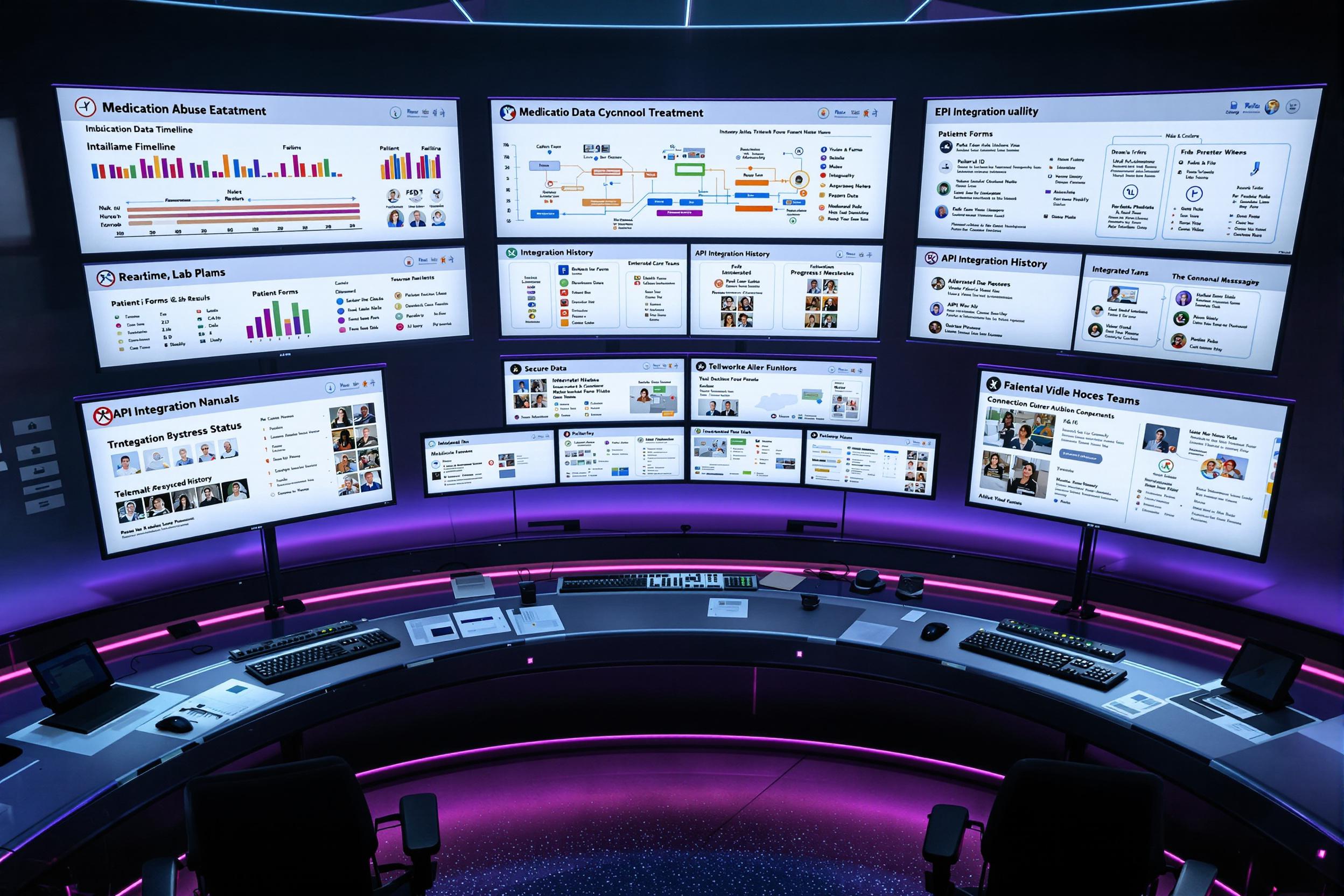
Every delay in accurate documentation can mean life or death in addiction treatment. With the global substance abuse treatment market set to reach USD 36.83 billion by 2034, facilities need an EMR built specifically for SUD workflows. Lightning Step's unified CRM-EMR-RCM platform, powered by our AI assistant LIA, delivers specialized templates, compliance controls, and real-time data to drive better outcomes. Lightning Step's AI assistant, LIA, helps clinicians save over 12.5 hours monthly on documentation tasks, freeing up more time for patient care.
Electronic medical records for substance abuse differ significantly from general healthcare EMRs. These systems must handle complex regulatory requirements, including HIPAA compliance and the recently updated 42 CFR Part 2 regulations that govern confidentiality of substance use disorder patient records.
The new regulations allow a single consent for all future uses and disclosures for treatment, payment, and healthcare operations. They also align Part 2 penalties with HIPAA and apply breach notification requirements. This regulatory complexity demands specialized EMR functionality that general systems simply cannot provide. The final rule also requires separate patient consent for SUD counseling notes, similar to HIPAA's psychotherapy notes.
When comparing electronic medical records for substance abuse, focus on these key criteria: specialized feature sets, integration capabilities, advanced technology, implementation costs, and return on investment. Each factor plays a role in determining which system best serves your facility's needs.
Effective substance abuse EMRs must include customizable treatment plans and specialized workflow templates. These systems need to support detox protocols, outpatient programs, and Medication-Assisted Treatment (MAT) pathways. MAT combines medication with psychosocial treatment and requires precise documentation and tracking capabilities.
Built-in clinical assessments are non-negotiable. Look for systems that include standardized tools like the Addiction Severity Index (ASI), Clinical Opioid Withdrawal Scale (COWS), and SUD screening protocols. These assessments must integrate seamlessly with treatment planning and progress tracking.
E-prescribing of controlled substances with PDMP integration is essential for safe medication management. Prescription Drug Monitoring Programs track controlled substance prescriptions and provide prescribers with comprehensive patient history. Your EMR must connect to these databases in real-time.
Telehealth capabilities have become increasingly important. Telehealth supports individuals with substance use disorder through remote monitoring, virtual counseling, and patient triage. Modern systems integrate video conferencing, mobile apps, and wearable device data.
Lightning Step's EMR solution delivers these features through prebuilt templates and flexible configuration options, allowing facilities to customize workflows while maintaining compliance standards.
Lab integration streamlines drug screening workflows by automatically importing results from on-site and external testing facilities. This automation reduces manual data entry and ensures accurate, timely documentation of patient progress.
Pharmacy interoperability enables real-time e-prescribing and refill coordination. Your EMR should connect directly with pharmacy systems to track medication adherence and identify potential drug interactions or abuse patterns.
Unified scheduling, billing, and insurance eligibility checks within one platform eliminate duplicate data entry and reduce administrative burden. Staff can manage appointments, verify coverage, and process claims without switching between multiple systems.
Secure data exchange with external providers and community resources supports comprehensive care coordination. Patients often need referrals to social services, housing assistance, or specialized medical care. Your EMR should facilitate these connections while maintaining privacy protections.
Lightning Step's integrated platform combines CRM, EMR, and RCM capabilities with open APIs and ready-made connectors for seamless third-party integration. Lightning Step supports the Ideal Minimum Dataset for PDMP Response to EHR Inquiry to standardize controlled-substance data exchange.
Lightning Step's patient portal and mobile app deliver secure messaging, appointment reminders, and self-reporting tools that boost engagement by over 25%.
AI-driven decision support represents the cutting edge of substance abuse treatment technology. AI analyzes addiction patterns and predicts relapse while providing personalized treatment recommendations. Lightning Step's predictive analytics dashboard uses machine learning to forecast relapse risk and personalize care plans source.
Robust security and compliance features ensure data protection through encryption, audit trails, and automated 42 CFR Part 2 enforcement. Your EMR must maintain detailed logs of who accessed patient information and when.
Lightning Step's analytics dashboard and built-in compliance features help facilities monitor performance while maintaining regulatory adherence.
Pricing structures vary between subscription and perpetual licensing models. Small clinics can expect setup costs of $1,500–$5,000 with monthly subscription fees. Module add-ons for specialized features may increase costs but provide targeted functionality.
Implementation timelines depend on data migration complexity, system configuration requirements, and staff training needs. Healthcare organizations should budget 15-20% of initial implementation costs for annual maintenance.
Ongoing support includes customer success services, regular updates, and user communities. Vendor responsiveness and training resources significantly impact long-term success.
ROI calculations should factor in clinician time savings, improved billing accuracy, and enhanced patient engagement. Well-implemented EMR systems typically achieve positive ROI within 12-18 months through operational efficiencies. In one case, a mid-size addiction clinic saw a 17% reduction in claim denials within six months of Lightning Step deployment case study. Quantify savings from reduced transcription fees and fewer claim denials to round out your ROI model.
Lightning Step's transparent pricing and rapid deployment process help facilities achieve faster ROI through streamlined workflows and reduced administrative overhead.
Use this checklist to evaluate potential EMR systems:
Take time to involve clinical staff, administrators, and IT personnel in the evaluation process. Their input ensures the selected system meets operational needs and workflow preferences.
Choosing the right EMR transforms both care quality and operational efficiency. Use this guide and our checklist to evaluate systems, then request a Lightning Step demo to see how our AI-powered, all-in-one platform can elevate your substance abuse treatment program.



